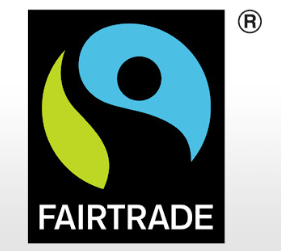Fairtrade
Fairtrade notion applies to the trade between companies from developed countries and producers from the developing countries and aimed at helping the latter to function and grow more efficiently. The key difference from the usual trade process here is that the price for the product is kept at the so-called “fair” level to the producers — that would allow them to keep the living and working conditions at a decent level. Bananas, coffee, fruits are some of the examples of fairtrade products.
Fairtrade price VS market priceWhat products does fairtrade apply to?
What is the Fairtrade Mark?
Principles of fairtrade practice
Fairtrade companies in the UK
How to get a fairtrade licence?
How is fairtrade funded?
Fairtrade price VS market price
The fairtrade price is also known as the fairtrade minimum price and it defines the lowest price that you should pay the producer of the product. The fairtrade price is introduced to avoid the producers being paid not enough if the market price does not let them meet the decent standards of living. If, though, the market price is higher than the set fairtrade minimum price the trader must pay the market price to the producer.
What products does fairtrade apply to?
The products involved in the fairtrade are usually those produced at farms. Here is a list of most wide-spread fairtrade products in the UK, they can be divided into food and non-food ones.
Food products include:
- Bananas
- Cocoa
- Coffee
- Dried fruit
- Fresh fruit & fresh vegetables
- Honey
- Juices
- Nuts/oil Seeds/oil
- Quinoa
- Rice
- Spices
- Sugar
- Tea
- Wine
Non-food products include:
- Beauty products
- Cotton
- Сut flowers
- Ornamental plants
- Sports balls
- Gold
- Platinum
- Silver
What is the Fairtrade Mark?
The Fairtrade mark is a special label that you put on your fairtrade products to let the customers know you are involved in the scheme and that they help promote the fairtrade movement. This label means that such a product meets the International Fairtrade standards and has been officially certified. The Fairtrade mark is attached to a particular product and does not extend to all the companies’ business activities. Here is what it looks like and how you can spot it in a supermarket.

Principles of fairtrade practice
The fairtrade movement has outlined several basic principles defining what the fair traders should stick to:
- Direct trade means that fair trade importers should make the deals as directly as possible, avoiding any go-betweens — which will allow them to pay the producers more money. Producers on their side usually form so-called collectives — groups of people who run their farms. These collectives must also meet the fairtrade standards, providing decent conditions for the workers.
- Fair price, as described above, should be guaranteed to the producers and this minimum price should be kept even if the market price falls. Importers should pay in time — and even in advance — and in return, the farmers are expected to provide fair and timely wages to their workers.
- Decent working conditions should be provided to the workers on the farm. The producers vow to keep the working conditions as safe and healthy as possible. Fairtrade bans all forms of a child or forced labour, or any discrimination at work.
The fairtrade movement also promotes respectful relationships between the partners, communities’ development, environmental sustainability and respect for local cultures.
Fairtrade companies in the UK
Fairtrade International is the main fairtrade institution, which has its separate department in the UK. This body licences the use of the fairtrade mark in the UK, promotes fairtrade movement, raises public awareness about the role of the fairtrade. The foundation’s website offers a list of fairtrade companies. Here are some of them, divided by the product they sell:
Bananas: Abel and Cole, Morrisons, Spar
Chocolate: Ben and Jerrys, Cocoa Loco, Food Thoughts
Herbs and spices: Cotswold Ingredients, Sainsbury, Vanilla Bazaar
Flowers: Aldi, Moonpig, Serenata Flowers
Sweets and snacks: Cotswold Fudge, Fruity Beauties, Liberation
Beauty products: Fair Squared, Honeystreet Handmade
Wine: Bosman, Kumana, Pico a Pico
How to get a fairtrade licence?
To start selling fairtrade products, you must register as a fair trader and sign a Licence Agreement with the Fairtrade Foundation. Once you do it, you are considered a fairtrade registered licensee. After this, you are allowed to put the fairtrade mark on your products.
However, you should first take into account several things:
- Whether your product or commodity has a fairtrade standard
- Whether you know who will be the suppliers of your fairtrade products or ingredients
- Get to know the Fairtrade Trader Standard etc.
Here is a guide on how to move on with the registration. An accounting and bookkeeping company can then take the following paperwork connected with your business activities.
How is fairtrade funded?
The fees the Fairtrade foundation gets for giving licences to companies constitutes over 85% if the organisation’s income. The rest of the sum comes from the supporters of the movement (schools, faith groups, etc.) and the grants from different bodies (the European Commission, Comic Relief, etc.).
Want to register your UK company online? Get in touch with us and we will assist you.


